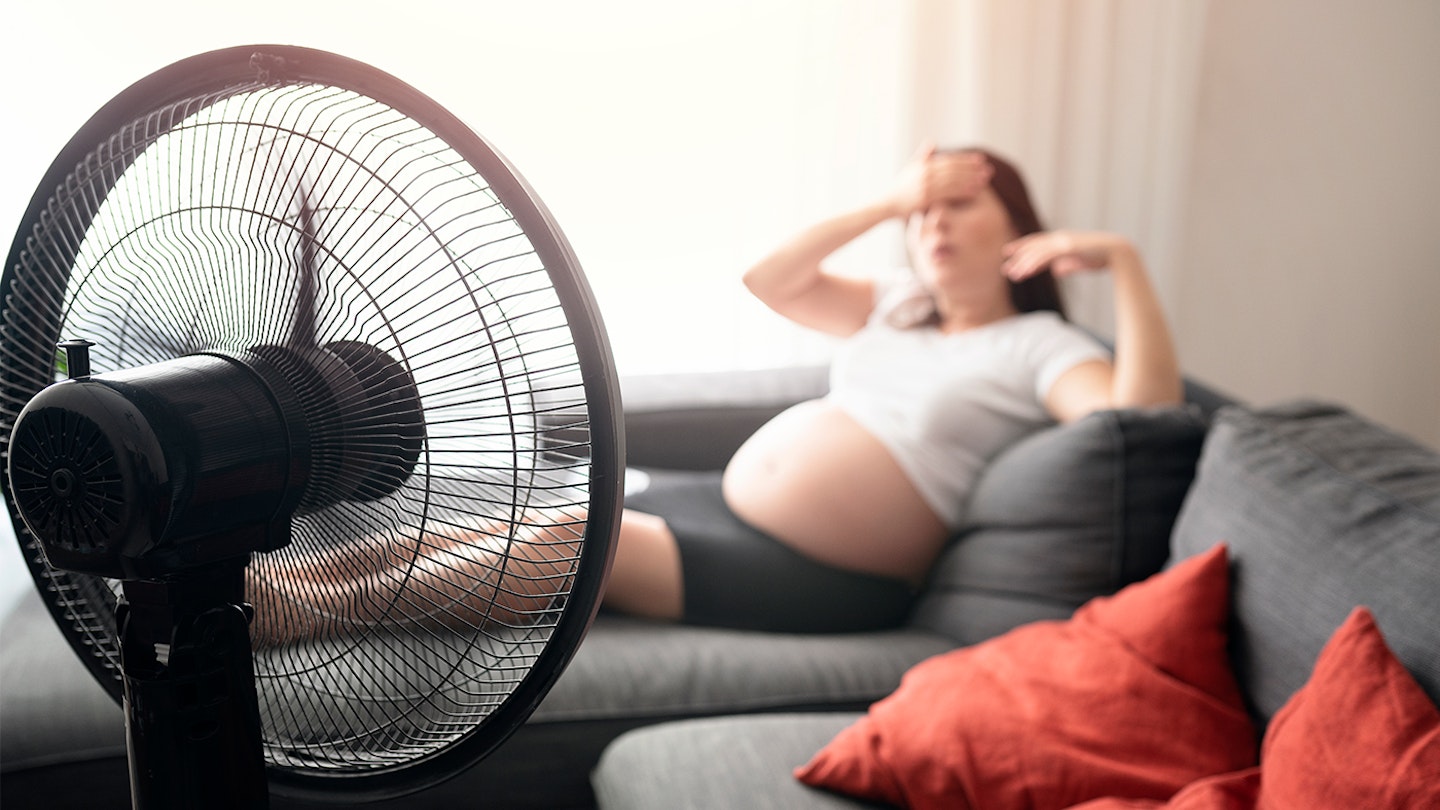The side effects of pregnancy seem to be never-ending and if you're feeling a bit hot and bothered lately, it's likely these hot flushes are a result of the little bub you're growing. Thankfully, it's harmless and completely normal while pregnant.
Is it normal to have hot flushes during pregnancy?
Yes, it is! Hot flushes - also known as hot flashes - are a symptom we normally associate with menopause. You'll know you have them when you experience a sudden sensation of excessive heat, mainly on the face, neck and chest. Excessive sweating and reddened skin can also accompany this phenomenon.
"It is also a symptom of pregnancy and is reported in over a third of cases during pregnancy and in the postpartum period (Thurston et al 2013)," explains Dr Ayanthi Gunasekera, Specialist Registrar in gynaecology at London Gynaecology. "Hot flushes are a result of hormonal changes driven by your pregnancy. These changes lead to an increase in the blood supply to the skin and result in a rise in body temperature."
The length of hot flashes ranges from seconds to minutes and once they pass, you may even feel a bit chilly afterwards because of the sudden loss of body heat.
When do hot flashes in pregnancy start?
Most women report experiencing hot flashes in their second and third trimesters.
"One studyexamining the appearance of hot flashes throughout pregnancy found that as many as 18 per cent of women developed hot flashes within the first 20 weeks. In total, 35 per cent reported hot flashes at some point throughout their pregnancy, and 29 per cent experienced them postpartum," says Dr Ayanthi.
"While they typically peak in the third trimester, hot flashes can appear at any point during the course of pregnancy. A study found that 10 per cent of women reported hot flashes within the first postpartum month."
Do I need to tell my midwife about pregnancy hot flashes?
Hot flashes are not harmful but you should inform your midwife of any symptoms that are bothering you and they will be able to reassure you. "Your midwife will also be able to check that you are not having a fever which is a sign of an underlying infection and may need treatment," Dr Ayanthi adds.
What can I do to help?
They may not last long but there are still a few things you can do to help you cool down quickly:
• Wear loose clothes made from natural fibres
• Keep well hydrated
• Ice packs / cold towels used at pulse points – temples/back of the neck
• Stay in the shade
• Keep your room cool with the likes of an electric fan or a handheld fan if you're on the go
• Take a refreshing shower
• Avoid triggers such as spicy food and hot drinks
Meet the expert
Dr Ayanthi Gunasekera is the medical information lead and specialist registrar in gynaecology at London Gynaecology. Ayanthi is a senior obstetrics and gynaecology (O&G) trainee (ST7) in North and East London at Barnet and Chase farm Hospitals NHS Trust. She has a keen interest in medical education and has a PG certificate in Medical Education.
